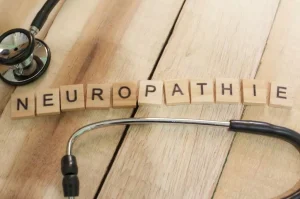
This is where support systems come into play, acting as a crucial lifeline in the recovery process. Whether it’s family, friends, support groups, or professional help, having a network of support can make all the difference. It’s like having a team of cheerleaders rooting for you as you run a marathon – their encouragement can help you push through when you feel like giving up. Get professional help from an online addiction and mental health counselor from BetterHelp. Mental dependence is when use of a substance is a conditioned response to an event or feeling. These are known as “triggers.” Something as simple as the act of driving can trigger a desire to use.
Addiction and Dependence for Illicit Drugs

A luxury center with a maximum of 8 clients at a time treating addiction, dual diagnoses, and primary mental health concerns using adventure therapy, evidence-based modalities, and unique programs for long-lasting healing. Addiction primarily differs from a habit in that stopping has consequences. Many people who try to stop experience withdrawals, which are physical and mental reactions to not having the substance3.
- While dependence and addiction are often used interchangeably, they are different.
- Opioid-based pharmaceuticals, often used for pain management, can present a complex picture of both dependence and addiction, as both can develop even with proper use.
- This is why recent evidence-based literature clearly defines the difference between addiction and physical dependence in drug use.
- Some nuances can make it difficult to determine if someone is addicted or dependent on a substance.
What is the difference between opioid addiction and dependence?
If you were addicted to the substance, just cutting down wouldn’t ordinarily work. The National Center for Drug Abuse Statistics says more than 20 million people over the age of 12 in the United States have substance use disorder. Most commonly, the cases are related to marijuana and prescription pain relievers. Addiction addiction vs dependence is considered “highly treatable.” But it can take a few tries for the therapy to be fully effective. One of the main medical texts that are used by mental health professionals to diagnose addiction is the Diagnostic and Statistical Manual of Mental Disorders (the DSM), which is currently in its fifth edition.
Mental Dependence Vs. Physical Dependence
- Could someone who is dependent on alcohol or drugs be diagnosed as having an addiction?
- Whether you’re in the early stages or have a full-blown disorder, the earlier you get help, the greater your odds of overcoming this successfully.
- Before any opioid regimen is prescribed, both the patient and doctor must work together to develop a plan in case the person patient begins to show signs of SUD.
- A person may develop tolerance to a drug if they use it for a long time.
- Long-term inpatient treatment programs vary in length, but typically last between 3 to 18 months.
Addiction indicates more of a substance use disorder, while dependence is the physical body’s buildup of tolerance to a drug. Someone who’s dependent on a substance may or may not be addicted to it, but someone who’s addicted to a drug has always become dependent on it. When addicted to a substance, a person cannot stop using it despite the negative consequences it has on their life. When they first use a drug, people may perceive what seem to be positive effects. Some people may start to feel the need to take more of a drug or take it more often, even in the early stages of their drug use. Addiction or substance use disorder occurs when individuals are largely unable to function without the drug.

Risk factors for addiction and dependence

For example, you could leave sticky notes to remind you not to do something, limit your screen time, or sell/throw away the item to stop the habit. Could you imagine going through painful withdrawals or intense emotional angst if you didn’t make your bed in the morning? You could stop any habit and, usually, suffer mild inconveniences or discomfort. Swapping one for the other can inadvertently cloud the truth of an addiction and the effects it can have. Why have some organizations scrapped addiction from their vocabulary? Well, the phrase carries a negative connotation and is ambiguous, according to the DSM.
This is where the mind gets hooked on the emotional or mental effects of a substance or behavior. It’s the voice in your head that says, “Just one more hit/drink/game, and then I’ll feel better.” True addiction often involves this psychological component, making it a formidable foe in the battle for recovery. It’s characterized by the body’s physiological adaptation to a substance, leading to tolerance (needing more to achieve the same effect) and withdrawal symptoms when use is discontinued. It’s important to note that physical addiction, often used interchangeably with dependence, is a complex phenomenon that deserves its own spotlight.
Drugs, Brains, and Behavior: The Science of Addiction
It’s characterized by compulsive drug-seeking behavior, loss of control over use, and continued use despite negative consequences. It’s like if your car not only needed gas but also insisted on driving itself to the gas station at all hours, regardless of your schedule or bank balance. The interplay between physical and psychological components is where things get really interesting.
For example, if a person is arrested for using drugs and leaves jail to pick up more, they’ve likely developed an addiction. Addiction causes individuals to act erratic or irrational https://ecosoberhouse.com/ when they cannot get more of their drug of choice. Struggling with addiction often results in a loss of control and negative consequences to health, relationships, and daily life.

Some working-group members voted in favor of a return to the use of the word ‘addiction’ because the word has become so commonplace in recent years and does not seem pejorative to them. The media has stories about ‘addiction to oil’ and women wear tee-shirts emblazoned with ‘addiction to pink’ or to shopping, etc. Of course, connotations of words change with time and culture; we acknowledge that there are no current studies that can be cited on whether the choice of labels might be pejorative. Because some scientists remain opposed to the use of the word ‘addiction’, we proposed a compromise.